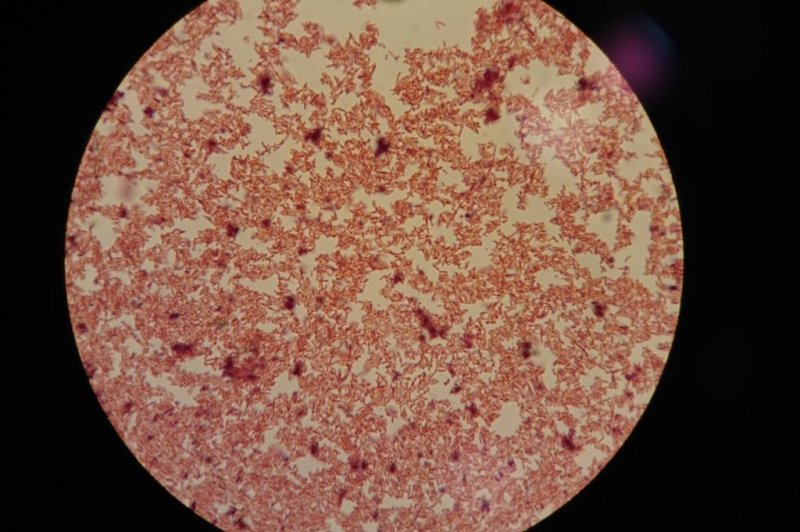As temperatures rise, bacteria communities will speed up their metabolism and emit more CO2, according to new research. Photo by
Wikimedia Commons
Nov. 12 (UPI) -- Climate scientists continue to uncover negative feedback loops triggered by warming global temperatures. New research suggests bacteria are likely to emit more CO2 as they adapt to warmer temperatures by speeding up their metabolism.
Bacteria and archaea, the two domains that make up the group of unicellular organisms known as prokaryotes, account for more than half of the planet's biomass. Like humans, the two groups release carbon dioxide when they respire.
The faster bacteria breathes, the more CO2 bacteria emits, and as temperatures rise, bacteria breathes faster. Until now, the exact relationship between temperature and prokaryote respiration was unclear.
For the new study, scientists precisely calculated how temperature impacts the respiration rates of 482 different prokaryotes. Lab tests proved the majority of prokaryotes boost their respiration rate in response to temperature increases.
"In the short term, on a scale of days to hours, individual prokaryotes will increase their metabolism and produce more carbon dioxide," Samraat Pawar, lecturer in the life sciences department at Imperial College London, said in a news release. "However, there is still a maximum temperature at which their metabolism becomes inefficient."
According to Pawar, prokaryote communities will, over the long-term, evolve to be more efficient at higher temperatures. As they adapt, the prokaryotes will be capable of even greater metabolism increases.
"Rising temperatures therefore cause a 'double whammy' effect on many prokaryote communities, allowing them to function more efficiently in both the short and long term, and creating an even larger contribution to global carbon and resulting temperatures," Pawar said.
For the study, published this week in the journal Nature Communications, scientists analyzed prokaryotes from a variety of niche ecosystems, including bacteria living in Arctic lakes and hot springs.
Researchers determined species adapted to moderate temperatures, below 45 degrees Celsius, changed their respiration rates most drastically in response to temperature changes.
When the study's authors plugged their new data in models, they found prokaryote communities are likely to expel more and more CO2 as temperatures rise. Increasingly, scientists are finding climate change feedback loops that ecosystem and climate change models must account for.
Another study published this week found cover crops fail to aid carbon sequestration as a result of the boost they provide bacteria communities in the soil.
Most models assume prokaryote respiration will respond to rising temperatures at rates similar to eukaryotes, organisms with more complex cells. But the latest findings prove otherwise.
"Given that these micro-organisms are likely to be significant contributors to total respiration and carbon output in many ecosystems, it's important for climate models to take into account their higher sensitivity to temperature change at both short and long timescales," said Thomas Smith, lead study author and doctoral student at ICL. "Importantly for future climate predictions, we would also like to know how the numbers of prokaryotes, and their abundance within local ecosystems, might change with increasing temperatures."















